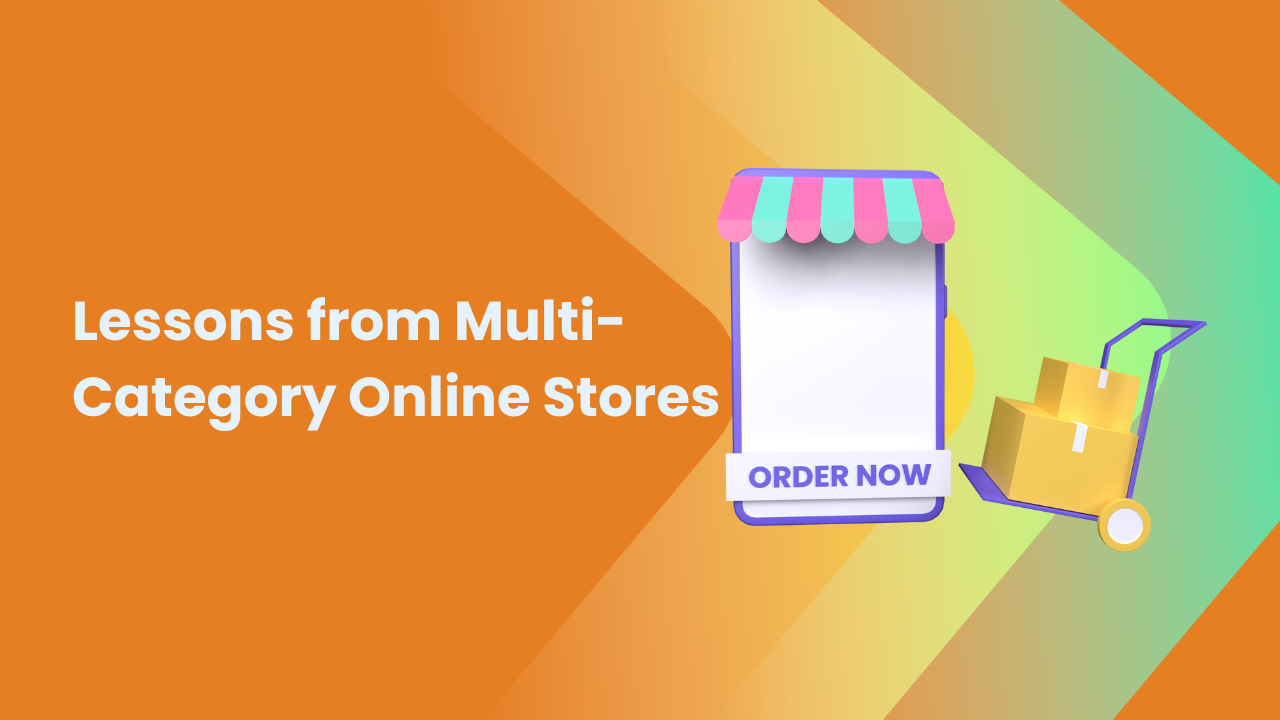Share this Article
Introduction
In the digital era, launching an online store no longer requires a team of developers or a significant upfront investment. The rise of online e-commerce builder platforms has revolutionized how businesses—big and small—enter the world of online retail. These platforms offer plug-and-play solutions that handle everything from storefront design to payment processing, inventory management, and customer engagement.
For businesses in developing countries like Nepal, where digital infrastructure is steadily growing, e-commerce builders have opened up transformative opportunities. Entrepreneurs, local manufacturers, service providers, and even traditional artisans are leveraging online stores to reach customers beyond geographical limits. This essay delves deep into the world of online e-commerce builders—their evolution, features, advantages, and their role in shaping the digital economy, especially in emerging markets.
What is an Online E-Commerce Builder?
An online e-commerce builder is a web-based software platform that allows users to create, manage, and scale an online store without the need for advanced programming skills. These platforms usually come with ready-to-use themes, drag-and-drop design tools, built-in shopping carts, secure payment gateways, product catalogs, and analytics dashboards.
E-commerce builders are typically offered as SaaS (Software as a Service) models, which means users pay a monthly or annual subscription to use the platform and its features. Popular international platforms include Shopify, Wix, WooCommerce, BigCommerce, and Squarespace. In Nepal, local solutions like Saauzi Smart Solutions and NepBay are emerging as regionally customized alternatives.
Key Features of Modern E-Commerce Builders
To understand the power and appeal of e-commerce builders, it’s important to explore their key components:
1. Drag-and-Drop Storefront Builder
These builders come with visual design tools that let users design the look and layout of their store without touching code. You can arrange headers, banners, product displays, and checkout pages using simple drag-and-drop actions.
2. Mobile Responsiveness
Most modern e-commerce builders ensure that stores look good and function well on smartphones, tablets, and desktops—an essential feature given the mobile-first shopping habits in Nepal and similar markets.
3. Product and Inventory Management
Sellers can easily list products, add variations (like size or color), set prices, manage stock levels, and categorize items for smooth navigation.
4. Secure Checkout and Payment Gateways
Online builders integrate with trusted payment services, allowing customers to pay via credit/debit cards, wallets, or local payment processors like eSewa or Khalti in Nepal.
5. Order Tracking and Customer Management
Users can monitor orders, manage returns, send updates to customers, and store customer information securely for future marketing efforts.
6. SEO and Marketing Tools
Built-in tools help optimize the store for search engines (Google, Bing), create discount coupons, run ad campaigns, and send email newsletters.
7. Shipping and Delivery Integration
Builders allow users to set up shipping rules, integrate with courier services, and automate delivery notifications—important in a country with challenging terrain like Nepal.
Benefits of Using an E-Commerce Builder
1. Speed of Launch
An online store can go live within a day or two, drastically reducing time-to-market compared to custom-built websites which may take weeks or months.
2. Cost-Effectiveness
E-commerce builders offer professional features at a fraction of the cost of hiring a developer or agency. This makes them especially attractive for startups, small retailers, and home-based entrepreneurs.
3. Accessibility
Even individuals with zero coding knowledge can build functional, elegant online stores. This democratizes e-commerce for everyone, including rural sellers.
4. Scalability
As a business grows, most builders offer upgrades for advanced features like analytics, CRM tools, multiple payment options, or international shipping.
5. Security and Compliance
Top-tier builders follow best practices in data security and comply with legal regulations, helping businesses safeguard customer data and avoid liabilities.
Global vs. Local E-Commerce Builders
While international platforms like Shopify offer powerful global reach, local platforms in Nepal are tailored to regional contexts. Here's how they compare:
Global Builders (Shopify, Wix, BigCommerce):
- Strong brand reputation and reliability
- Global payment integration (PayPal, Stripe, etc.)
- Better suited for export businesses or international clientele
- Higher cost for subscriptions, plugins, and transactions
Local Builders (Saauzi, HaatBazaar, SmartDoko Custom Solutions):
- Integration with local wallets (eSewa, Khalti)
- Local language support
- Regional shipping partnerships
- Lower pricing and culturally relevant design options
For a Nepali retailer catering to local customers, a homegrown platform may offer better alignment with local logistics, currency, taxes, and support.
Use Cases: Who Should Use E-Commerce Builders?
1. Artisans and Handicraft Sellers
Nepal's rich tradition of handmade goods can find new markets online. E-commerce builders allow Thangka artists, Pashmina weavers, and woodcarvers to list and sell directly to customers, bypassing middlemen.
2. Small Retail Shops
From clothing stores to electronics and cosmetics vendors, small businesses can use these platforms to digitize their storefront and reach urban and rural buyers alike.
3. Home-Based Food Entrepreneurs
Cottage food businesses—bakers, homemade pickles, ayurvedic supplements—can sell directly using online platforms with delivery tie-ins.
4. Farmers and Agro-Suppliers
In emerging trends, farmers are using e-commerce to sell organic produce, seeds, and fertilizers directly to urban consumers.
5. Service Providers
Service businesses like tailoring, printing, tutoring, and IT support can use e-commerce builders to book appointments, collect payments, and offer subscriptions.
The Nepali Context: Challenges and Opportunities
While the potential is immense, the adoption of online e-commerce builders in Nepal is still evolving due to a few challenges:
Challenges:
- Internet Connectivity: Rural internet penetration is still inconsistent.
- Digital Literacy: Many business owners are not yet familiar with online tools.
- Logistics: Delivery infrastructure in hilly and mountainous regions can be slow or unreliable.
- Payment Trust: Not all consumers trust online payments or prepayments.
Opportunities:
- Youth-Driven Entrepreneurship: The young population is tech-savvy and eager to experiment with digital businesses.
- Mobile-First Market: Increasing smartphone usage means customers are ready for mobile shopping experiences.
- Tourism Market: E-commerce can help local vendors sell souvenirs to tourists after they return home.
- Government Support: Policies are gradually encouraging digital payments and small business digitalization.
Choosing the Right E-Commerce Builder in Nepal
Before selecting a platform, businesses should consider:
- Does it support local languages and currency?
- Can it integrate with Nepali payment gateways?
- Does it offer fast and reliable local customer support?
- Are the themes and templates suited to your brand style?
- How easy is it to use for a non-tech-savvy user?
- Is the pricing structure sustainable as you scale?
Platforms like Saauzi Smart Solutions offer a localized dashboard, Nepali fonts, eSewa/Khalti payment options, and plugins suited for the Nepali retail landscape.
Future of Online E-Commerce Builders
The future is bright for no-code and low-code e-commerce builders. AI is already being used to auto-generate product descriptions, offer chat support, and analyze customer behavior. Augmented reality and 3D product views will soon become common in user interfaces. Even rural businesses will soon be able to manage fully automated stores through mobile phones.
In Nepal, as 5G rolls out, digital literacy increases, and delivery systems improve, e-commerce builders will become the default pathway for launching and managing any retail business.
Conclusion
E-commerce builder platforms are unlocking the potential of online business for a new generation of entrepreneurs. They eliminate technical hurdles, reduce costs, and speed up the process of going digital. For businesses in Nepal—from the bustling streets of Kathmandu to the quiet towns of Tehrathum or Palpa—these tools are more than just digital solutions; they are gateways to economic independence, global outreach, and long-term growth.
By embracing e-commerce builders, Nepali businesses can keep pace with global trends, meet the expectations of modern consumers, and contribute to a thriving digital economy.
Categories:
E-commerce Tips & Tutorials
,
Marketing & Growth
,
SEO & Content Marketing
,
Beginner’s Guides
,
Sales & Conversion
,
Success Stories & Case Studies
,
Platform Features & Updates
,
Platform Comparisons
Tags:
Online Store in Nepal
,
5 Simple Steps
,
local businesses
,
e-commerce app
,
Small Business
,
strong brand
,
E-commerce
,
Role of Social Media
,
Growing sales
,
strategies
,
Social media







